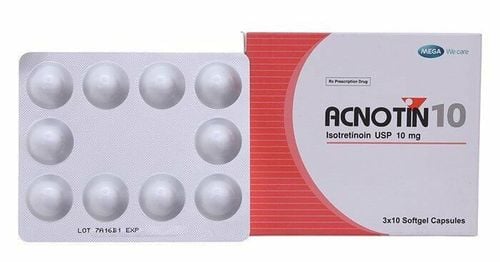1. Why is it necessary to supplement magnesium for children?
Magnesium is an essential mineral involved in over 300 different chemical reactions in the body and plays a crucial role in metabolism. Magnesium works in conjunction with calcium to ensure normal muscle function. Calcium promotes muscle contraction, while magnesium helps with muscle relaxation. Magnesium also helps activate vitamin D and calcium, contributing to healthy bones.
In addition, magnesium plays an important role in maintaining normal heart function, preventing tooth decay, and supporting the immune system when the body is under stress. Moreover, magnesium is a relaxing element and plays a role in promoting sleep.
2. How much magnesium does your child need?
The amount of magnesium the body needs depends on age and gender. The recommended daily magnesium intake for different age groups is as follows:
- Infants under 6 months: 30 mg/day
- Infants from 7-12 months: 75 mg/day
- Children from 1-3 years: 80 mg/day
- Children from 4-8 years: 130 mg/day
- Children from 9-13 years: 240 mg/day
- Males from 14-18 years: 410 mg/day
- Females from 14-18 years: 360 mg/day.

3. What are the symptoms of magnesium deficiency in children?
Magnesium deficiency in children is not a very common condition. However, due to the increasing consumption of processed foods, magnesium deficiency has become more prevalent. This is because magnesium tends to be lost during the processing of food. Therefore, parents should prioritize whole foods in their children's diet, especially when there are signs of magnesium deficiency. Magnesium deficiency can also occur in children with digestive disorders such as celiac disease, chronic diarrhea, or type 2 diabetes.
Initially, the signs of magnesium deficiency in children include loss of appetite, nausea, vomiting, fatigue, and weakness. When the deficiency is severe, symptoms can include tingling, numbness, muscle spasms or cramps, and more serious issues such as irregular heartbeat and seizures. Magnesium deficiency can also affect children's behavior, leading to feelings of sadness (irritability or hyperactivity), difficulty concentrating, insomnia, and anxiety.
4. The consequences of magnesium deficiency in children
Magnesium is one of the essential elements in the body, involved in metabolism, ensuring the function of bones, muscles, and the immune system. When children are deficient in magnesium, it can lead to many dangerous health conditions, causing them to grow slowly, develop poor height, and have smaller bones and muscles. Additionally, magnesium deficiency in children often leads to behavioral disorders, aggression, or depression and anxiety.
Magnesium plays a role in muscle relaxation. Therefore, if children lack magnesium, it can cause muscle weakness, increased risk of cramps, muscle spasms, and involuntary eye twitching.

5. How should magnesium deficiency in children be supplemented?
Magnesium is supplemented daily into the body through diet or vitamin and mineral supplements. Parents can be assured that magnesium can be easily provided to children through a balanced diet. Some magnesium-rich foods that parents should include in their children's diets are:
- Dark green vegetables: spinach, kale, etc.
- Nuts: roasted pumpkin seeds, cashews, almonds, peanut butter, chia seeds, etc.
- Legumes: soybeans, black beans, kidney beans, lentils, etc.
- Whole grains: bread, oats, brown rice, etc.
- Fatty fish: salmon, flounder, etc.
- Fruits and vegetables: bananas, broccoli, carrots, apples.
If children show signs of magnesium deficiency, parents should consult a doctor. In some cases, in addition to magnesium through the diet, the doctor may prescribe magnesium supplements or functional foods for the child. According to leading nutrition experts, parents need to be calm and patient when supplementing nutrients for their children, whether through food or supplements. Especially when using supplements, they should choose natural, easily absorbed sources and avoid giving the child multiple or continuously changing supplements.
In addition to magnesium, children need to supplement other essential micronutrients such as zinc, selenium, chromium, vitamin B1 and B6, ginger, cherry extract (vitamin C), etc., to improve appetite, achieve proper height and weight, boost the immune system, enhance resistance to minor illnesses, and address digestive issues. Parents should also learn about the role of bioavailable zinc and supplement it at the right times to avoid zinc deficiency, which can affect their child's overall development.
Please dial HOTLINE for more information or register for an appointment HERE. Download MyVinmec app to make appointments faster and to manage your bookings easily.













